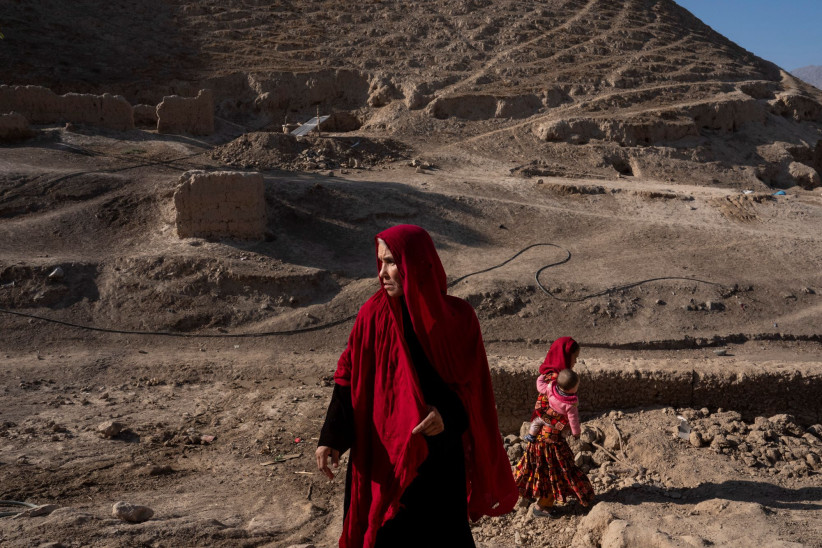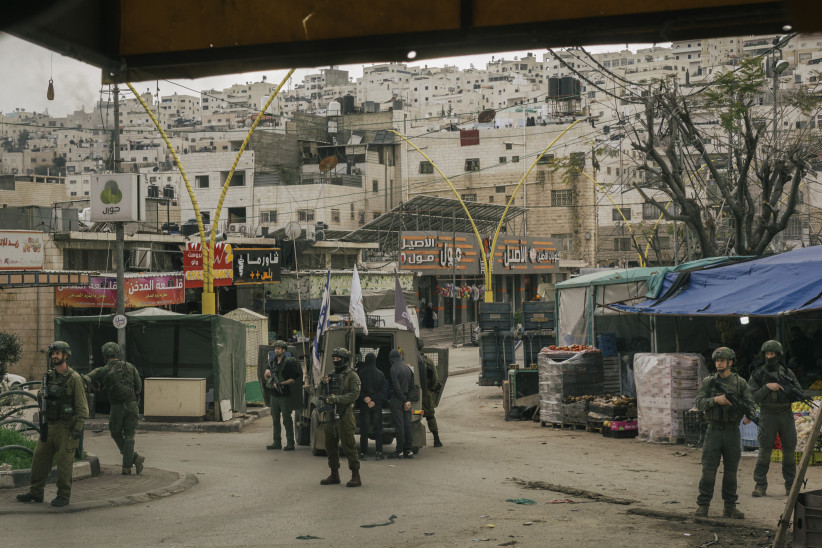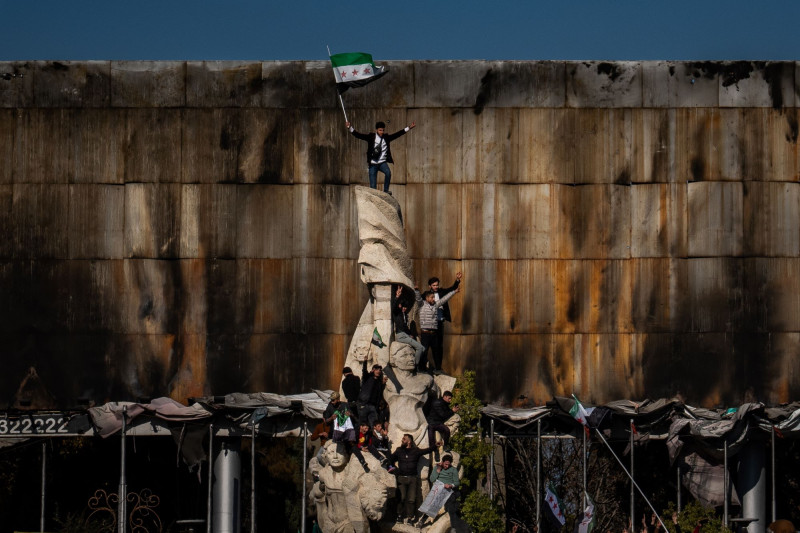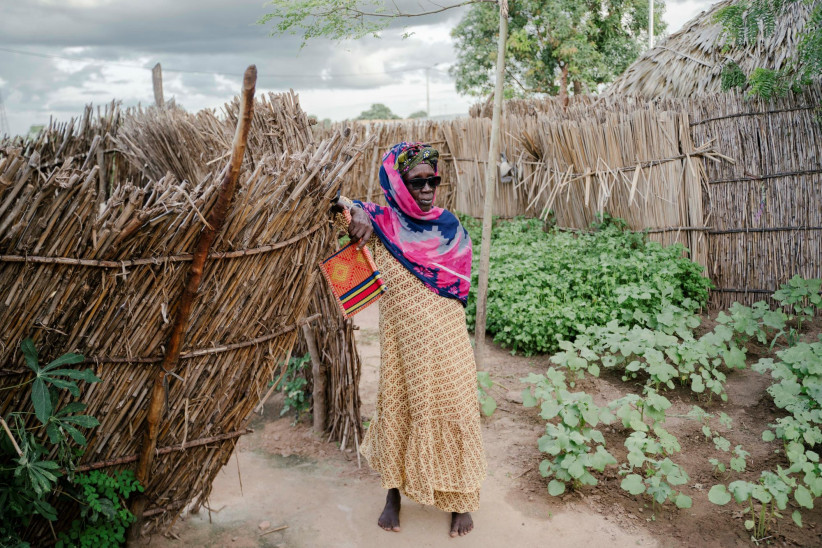As 2024 draws to a close, four of these Washington Post photographers reflect on the stories they covered this year
From Afghanistan to Ukraine, from Russia to Syria, over the past year, Washington Post staff, contract and freelance photographers have traveled the world to witness a tumultuous series of crises and conflicts.
As 2024 draws to a close, four of these photographers—Carolyn Van Houten, Lorenzo Tugnoli, Salwan Georges, and Carmen Yasmine Abd Ali—reflect on the stories they covered this year and what they’ve learned from their work.
Carolyn Van Houten – Afghanistan
Photographer Carolyn Van Houten traveled to Afghanistan in May and November to report on the changes the Taliban government has brought about since taking control of the country.
“Every day I slipped into my abaya, covered my face and wore a hijab. It became a rite of passage to go from the normal version of myself to the version I needed to be on a mission in the field. As soon as I walked through the office doors and out into the world, I became a silent version of myself—a version that stayed quiet, avoided eye contact, didn’t laugh, and kept her camera hidden to capture a few moments when the situation was either safe enough or bright enough to risk it. Fortunately, Afghanistan is full of quite bright moments.
“Working in Afghanistan means being creative with your limitations”
“While the bans on women are, at times, different for me as a privileged Westerner, the disadvantages of being a female photographer working in Afghanistan remain many. However, the world that opened up to me as a result of working within these constraints was incredible. On one memorable day, I stood as the only woman among hundreds of men at a buzkashi tournament. Instead of watching the violent clashes going on with the riders, hundreds of men were staring at me. As I tried to work, I couldn’t move without a swarm of boys following me. Another day, we approached a village where all the men had left for a wedding. Since there was no man to accompany my male colleagues, only I was allowed to enter deep into the village with the women.
“Working in Afghanistan means being creative with your limitations. However, the moments when you can take out your camera and get to work are worth the days of effort, risk and patience it often takes to get there».
Lorenzo Tugnoli – West Bank
Contract photographer Lorenzo Tugnoli spent weeks in 2024 reporting in the West Bank, where Israeli Prime Minister Benjamin Netanyahu’s coalition government has dramatically expanded Israel’s footprint.
“I first traveled to the West Bank in 2006 to cover the Palestinian elections. Since then, I have seen how walls and checkpoints have changed the landscape. Palestinians spend hours at checkpoints or travel complicated routes to reach nearby villages. Their land is fragmented by Israeli settlements that have spread to every corner of the West Bank, while settler violence has increased and pushed many families to flee their ancestral lands.
“As a journalist, I feel a duty to highlight the crimes committed against oppressed people and shed light on the reality”
“This ongoing conflict is not easy to cover. Palestinians endure injustice and humiliation to perform simple duties of daily life. Women and children are killed in urban wars that break out in densely populated areas.
“Any occupation is brutal and unjust, but this is particularly hard to see. As a journalist, I feel a duty to highlight the crimes committed against oppressed people and shed light on the reality».
Salwan Georges – Syria
Photographer Salwan Georges spent the last weeks of 2024 in Syria, a country he once called home, reporting on the fall of Bashar al-Assad’s regime.
Walking through the old city was like stepping back in time – it reminded me that, regardless of the challenges of war, Damascus retains its soul
“Covering Syria as a photographer was both surreal and deeply personal. I crossed into the country via southern Turkey shortly after the fall of the Assad regime, among the first journalists to see the aftermath in major cities recently held by the Syrian opposition. In Aleppo, life seemed to be cautiously returning to normal – shops reopening, people celebrating next to the iconic citadel. But between Aleppo and Hama, the devastation was staggering. Burnt cars and ruined buildings made the cities almost unrecognizable, yet people returned, wading through the ruins in search of their homes. Hama was particularly haunting to me. It was a city I had visited as a child, a place associated with happy memories. However, for the locals, it bore the brunt of the Assad regime’s brutal slaughter in the 1980s.
“For international journalists, Syria has long been out of reach. Abductions of foreign journalists by the regime and the massacre of local activists have made reporting from there almost impossible. I never thought I would have the chance to return to my second home. Arriving in Damascus was an emotional experience. It’s the city I grew up in as a teenager, a place that embraced my family when we were refugees from Iraq. Walking through the old city was like stepping back in time – it reminded me that, regardless of the challenges of war, Damascus retains its soul. The smell of spices, the sound of vendors, the generosity of its people – this city carries its history with a resilience that has always inspired me. It felt like coming home to a place that refuses to let its spirit be broken».
Carmen Yasmine Abd Ali – Gambia
Freelance photographer Carmen Yasmine Abd Ali traveled to The Gambia several times as the country’s parliament considered overturning the ban on female genital mutilation.
The courage of these women, speaking out despite threats and cultural taboos, is a powerful symbol of strength
“Covering the stories of FGM in The Gambia over the past year has been an intense and emotional experience, whether watching heated debates in parliament or broadcasting the quiet resilience of activists and survivors, confronting both deep-rooted traditions and the urgent push for change, a critical challenge that resonates across borders.
“The courage of these women, speaking out despite threats and cultural taboos, is a powerful symbol of strength and resilience in the ongoing struggle for justice and equality.
“These stories remind us of the importance of women’s voices challenging the status quo and breaking the silence that allows violence against women to continue worldwide».
Source :Skai
With a wealth of experience honed over 4+ years in journalism, I bring a seasoned voice to the world of news. Currently, I work as a freelance writer and editor, always seeking new opportunities to tell compelling stories in the field of world news.














